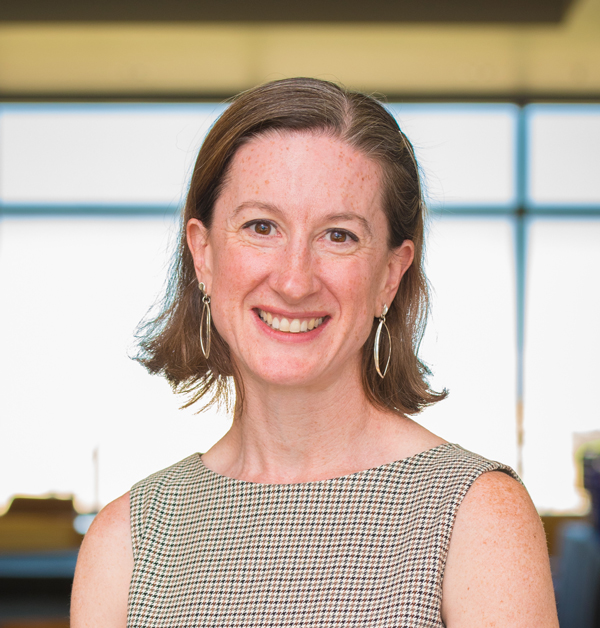
B.S., Chemical Engineering, University of Michigan
Ph.D., Chemical Engineering, Rice University
Post-doc, Chemical and Biological Engineering, CU-Boulder
Kristyn S. Masters, Ph.D.
Professor and Chair, Department of Bioengineering
Director, Center for Bioengineering
PROFESSIONAL POSITIONS
2023 – Professor and Chair of Bioengineering, CU-Denver|Anschutz
2023 – Director of the Center for Bioengineering, CU-Denver|Anschutz
2016 - 2023 Vilas Distinguished Achievement Professor, Dept. of Biomedical Engineering, UW-Madison
2014 - 2018 Director, Women in Science and Engineering (WISE) Residential Program, UW-Madison
2010 - 2016 Associate Professor, Dept. of Biomedical Engineering, UW-Madison
2004 - 2010 Assistant Professor, Dept. of Biomedical Engineering, UW-Madison
RECOGNITION AND AWARDS
2023 Slesinger Award for Excellence in Mentoring
2020 College of Fellows, Biomedical Engineering Society (BMES)
2019 Professor of the Year, UW-Madison BME
2018 Elected Fellow, American Institute for Medical and Biological Engineering (AIMBE)
2016 Harvey D. Spangler Faculty Scholar
2016 H.I. Romnes Faculty Fellow
2016 Vilas Distinguished Achievement Professor
2010 Polygon Outstanding Professor Award
2009 Emil H. Steiger Distinguished Teaching Award
2008 ASEE North Midwest Section Outstanding New Educator Award
2008 ASEE (National) Biomedical Engineering Division Teaching Award
RESEARCH INTERESTS
The field of tissue engineering is most often associated with the generation of healthy tissues to replace damaged organs. However, in recent years, the field has evolved to recognize the wide-ranging and near-term impacts that can be achieved through the application of tissue engineering techniques to model disease. My lab uses tissue engineering-based tools to create disease-mimicking platforms to decipher the cues responsible for regulating disease progression in conditions ranging from heart valve fibrosis to cancer, with a specific focus on sex differences in disease pathogenesis. The ultimate goal of this work is to use the information gained from these disease-mimicking platforms to identify new treatment approaches and targets to inhibit disease progression.
TEACHING
BIOE 4420/5420: Engineering the Extracellular Matrix
The objective of this course is for students to understand the biological and biophysical aspects of the ECM and their implications for ECM engineering.